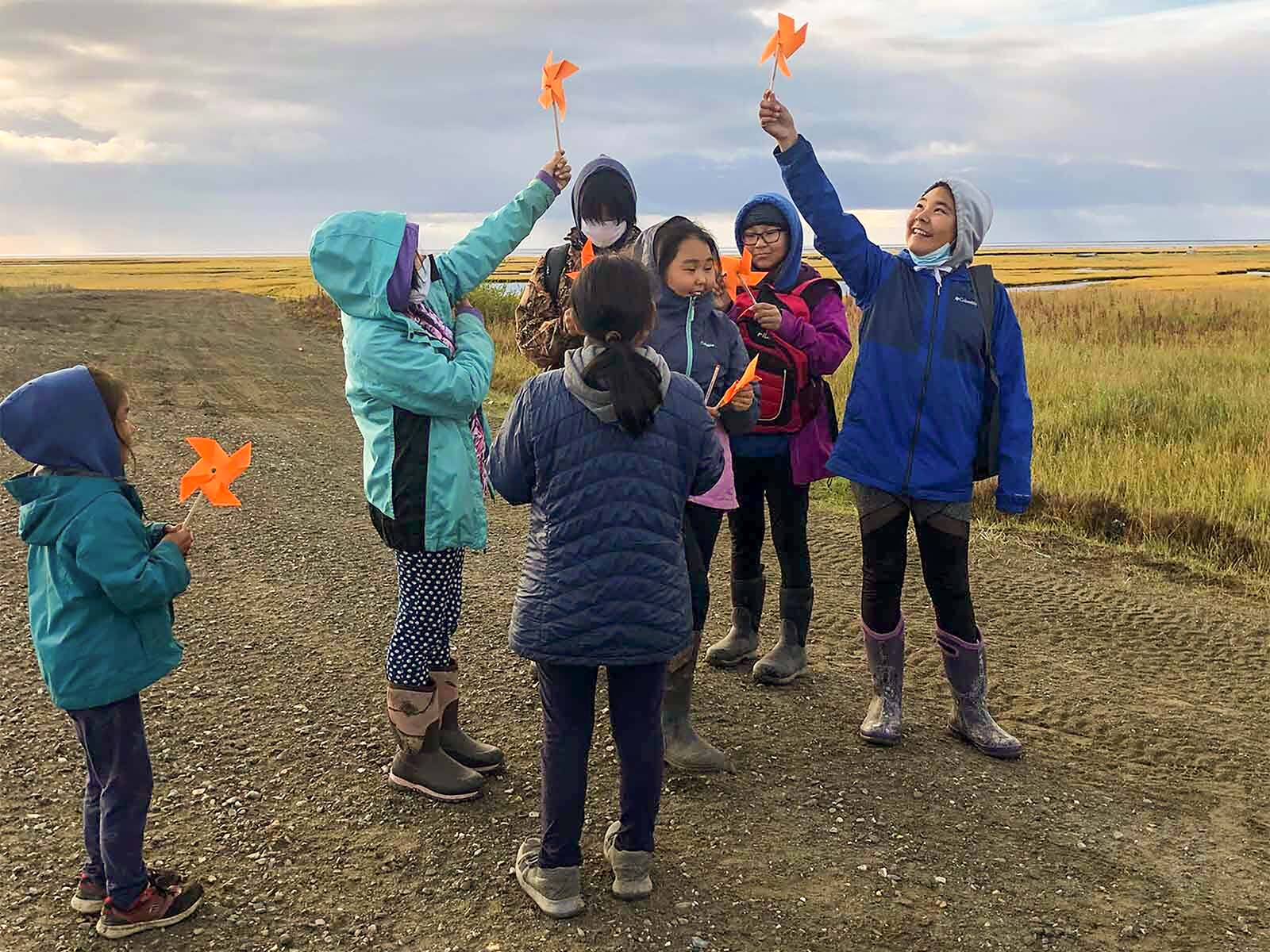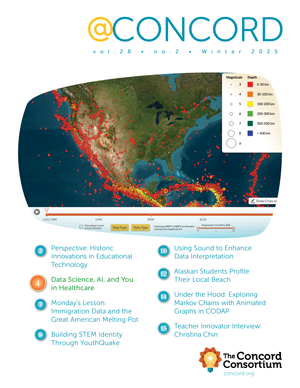News at Concord Consortium
Upgrading CODAP and Strengthening Data Science Education Outreach
Data fluency—the ability to explore, interpret, visualize, and transform data into actionable next steps—is critical for both STEM learners and future STEM workers as well as for participation in modern society. Our Common Online Data Analysis Platform (CODAP) is a free, open-source, web-based learning environment aimed at bringing data fluency to everyone, especially learners in grades 5-14. Designed to support data exploration in a user-friendly, visual, and accessible manner, CODAP received a Research-Based Design Product Certification from Digital Promise for its basis in learning sciences research.
CODAP has been pursuing its mission steadily, and we’re excited to note that this year marks its tenth birthday! In the decade since it was first introduced as the data analysis environment for our InquirySpace project, the CODAP codebase has grown to include a robust suite of features, scaffolds, and tools. Given CODAP’s ongoing success, we are especially thrilled to announce that we are now re-engineering CODAP to modernize its underlying codebase and provide a fully open, flexible, and customizable online learning platform prepared to support data science education well into the future.
The re-architecture of CODAP will include technical upgrades to enable its long-term scalability and sustainability, and will integrate the Concord Consortium’s latest work on collaborative tools, laying the groundwork for students to work together on larger and more challenging data exploration problems. As part of this new design work, we will engage K-14 audiences and youth in community-based citizen science projects, build out support resources and opportunities, and partner with dozens of organizations to ensure CODAP meets the needs of learners and programs that seek a free, open-source, and extensible data learning platform.
In addition, we are pleased to announce complementary work supporting data science education research. Thanks to new support from the Valhalla Foundation, we will work to build, support, and catalyze the data science education research community. We are excited to see these complementary initiatives yielding improved data-driven inquiry experiences, fostering and deepening research into different aspects of data education, and strengthening data fluency across a vibrant networked community of users and partners in both formal and informal science learning spaces within K-12 education.
We are grateful for the generous funding provided by Devin Finzer and the Valhalla Foundation to support this work.
Innovative Technology in Science Inquiry for Yup’ik Students
Two new projects—focused on grades 3-5 and 6-8, respectively—are supporting Yup’ik students in Hooper Bay, Alaska. We are engaging community partners, teachers, and students in adapting Concord Consortium STEM units by including local phenomena and Universal Design for Learning (UDL) features. The goal of both projects is to create dual-language, place-based STEM curricula based on Innovative Technology in Science Inquiry resources. The curricula will support the needs of English language learners while simultaneously providing a means for students to learn in their Yugtun Alaska Native language.

We will embed UDL and Yugtun language features such as a glossary in both English and Yugtun, videos with Elders, and speech-to-text and text-to-speech capabilities. The curricula will follow the multidisciplinary and multi-age 7E model of instruction at the core of Hooper Bay Charter School, with design features that are adaptable to other languages and cultures. Students will receive trade books and other print resources related to the STEM units for home use and sharing.Teachers will participate in remote professional development and learn to use data-based evidence about their students’ learning through the Concord Consortium’s reporting and dashboard systems to individualize instruction.
The projects aim to increase teachers’ self-efficacy for multidisciplinary science instruction for dual language learners; provide training for critical evaluation of culturally relevant curriculum; and improve student interest and achievement in literacy, math, and science, as well as their reported sense of cultural connectedness.
This material is based upon work supported by the Valhalla Foundation and the U.S. Department of Education (Grant Nos. T365C210008 and S356A210002).
